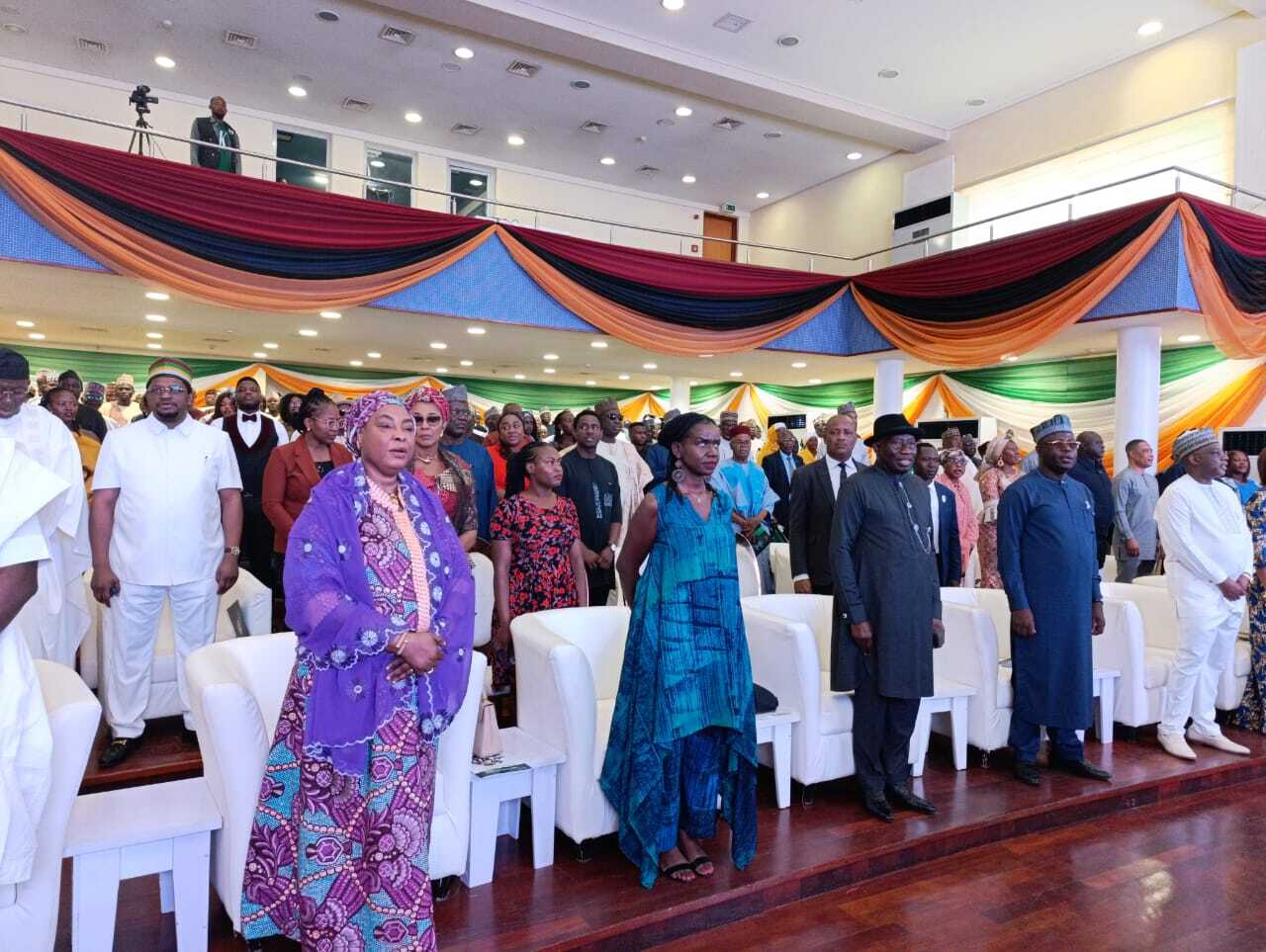… Says no investor wants corruption
…We must promote inclusion, equity, diversity – Mutfwang
Former Nigerian President, Goodluck Jonathan, has warned that a compromised judiciary and poor governance deter investment and diminish Nigeria’s global reputation.
He made the remarks at the 2025 Haske Satumari Foundation’s annual colloquium in Abuja, which focused on promoting social development through diversity, equity, and inclusion.
Jonathan criticised the actions of key political actors, stating that the decisions made by the executive, legislature, and judiciary shape how Nigeria is perceived internationally.
“No serious investor will bring their money into a country where the judiciary is compromised—where government officials can dictate court judgments,” he said.
Referring to the political situation in Rivers State, he invoked an Indian proverb: “If someone is truly asleep, you can wake them up. But if someone is pretending to be asleep, waking them up becomes impossible.”
“In Nigeria today, key actors—from the executive to the legislature and judiciary—know the right course of action, yet they refuse to take it. They are merely pretending to be asleep.”
The former president highlighted the abuse of power across all branches of government, stressing that governance decisions have far-reaching consequences.
“I always remind people that the actions of those in power affect everyone. Sometimes, people act as if their decisions have no personal consequences. But no one wants to invest in an environment where their financial assets are at risk,” he added.
Jonathan linked Nigeria’s poor global perception to failures in governance, rather than solely blaming criminal activities such as cyber fraud.
“Many assume our poor reputation is only due to fraudsters like ‘Yahoo Boys’ or the 419 scam. While such activities play a role, they are not the only factor. If we truly want to build a nation where our children and grandchildren can thrive, we must be willing to make sacrifices. Doing the right thing may come at a cost, but we must be prepared to pay the price,” he stated.
In the ongoing debate over the declaration of a state of emergency in Rivers State, Jonathan refrained from making direct comments.
“There is often an expectation that former presidents must comment on the actions of sitting presidents. However, traditionally, former leaders around the world rarely issue public statements on the decisions of their successors because of the potential tensions such remarks could create. This is a global practice—look at the United States, for example. Former presidents seldom comment on the governance of their successors,” he explained.
In his welcome remarks, the founder of the Haske Satumari Foundation, Kudla Satumari, stressed the importance of diversity and inclusion in national development.
“If you look at our society today, you will see how equity is critical to development. Every one of us faces some form of marginalisation. This colloquium amplifies the voices of those who feel excluded, ensuring that all forms of marginalisation are addressed,” he said.
Also, Governor Caleb Mutfwang of Plateau State, represented by Plateau State University’s Acting Vice-Chancellor, Shedrach Best, echoed the sentiments.
“The role of good governance is to promote inclusion, equity, and diversity. Plateau’s experience offers lessons for Nigeria in managing diversity. There were times we failed to manage our diversity well, and it led to conflict,” he said.
Mutfwang invited Nigerians to visit Plateau State, highlighting its cultural and natural attractions.
“Nigeria’s minorities may not have oil deposits, but we have tin and other precious minerals. Our diversity and good weather make the Plateau a unique and hospitable place,” he said.
Kenyan Senator, Crystal Asige, delivering the keynote address, underscored the systemic barriers preventing persons with disabilities (PWDs) from fully participating in politics, governance, and economic life.
“These issues are not confined to a single nation; they are prevalent across jurisdictions worldwide, including Nigeria and Kenya,” she said.
Asige said that despite legal frameworks promoting inclusivity, enforcement remains weak, leaving PWDs marginalised in politics, employment, education, healthcare, and social protection.
“The political landscape remains impenetrable for us. Political parties often sideline disability issues instead of integrating them into broader discussions. The restrictive mindset that PWDs should only engage in disability matters prevents us from assuming leadership roles in other critical sectors,” she stated.










